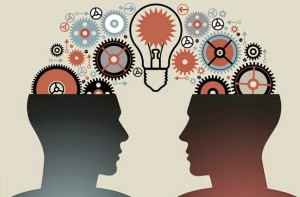Dec 16, 2014
What is Emotional Intelligence?

We define EI as the ability to:
- Recognize, understand and manage our own emotions
- Recognize, understand and influence the emotions of others
In practical terms, this can be described as ‘emotional literacy’; it means being aware that emotions can drive our behavior and impact people (positively and negatively), and learning how to manage those emotions – both our own and others. Examples of high pressure situations that require us to manage our emotions skillfully include:
- giving and receiving feedback
- meeting tight deadlines
- dealing with challenging relationships
- not having enough resources
- dealing with change
- dealing with setbacks and failure
Meaning Of Emotional Intelligence
Whether you are a formal manager or want to increase your individual performance (or both), the IHHP emotional intelligence training program will teach you the foundational principles and brain science of Emotional Intelligence (EI). You will become a student of human behavior: understanding what your brain does under pressure and how that affects your decision making and the impact you have on others. The idea is that the more you understand about how you react under certain conditions, the better you are able to anticipate your behavior and counter it with a more constructive response.
The Research:Research shows that this ability to manage emotions, particularly when there is pressure and tension, is directly correlated with performance, leadership and even happiness.
In his book Working With Emotional Intelligence, Daniel Goleman sites the Harvard Business School research that determined that EQ counts for twice as much as IQ and technical skills combined in determining who will be successful.
Emotional intelligence – why it can matter more than IQ: for additional research on the business case for EI, please refer to our white paper – The ROI for Emotional Intelligence
When they first hear the term EQ, many people think it’s something soft and squishy. We thought the same thing until we learned about the brain science of emotions. In particular, we all have the cognitive part of our brain where we do our best thinking, but we also have the emotional part of our brain – more specifically the amygdala – which responds when we feel fear or are threatened in any way (physically and socially).
In our programs, we help people understand the chemical responses we all experience under pressure, and how that can limit our ability to think cognitively, and move us toward our default behaviors during what is called an “amygdala hijack”, where this more primitive part of our brain can literally hijack our thinking mind.
The IHHP emotional intelligence training program will help you improve your own personal leadership by teaching you to manage your emotions in your most difficult moments. This learning will enable you to perform at your best, and connect with others in a more meaningful way. You will also gain critical skills that will enable you to influence and coach others, regardless of your position in your organization. Not only will this make you a more effective leader, it also offers you the ability to increase your position within the company and ultimately influence its success or failure.
We’ve been delivering keynotes, training, assessment and coaching programs on the topic of emotional intelligence in the workplace for over 15 years. We think we are especially good at:
- Creating learning programs (virtual or classroom) that take the research and brain science of EI and translate it into practical learning and techniques people can apply when they are under pressure
- Creating programs with very practical and interactive exercises that give people the opportunity to learn and practice how they can apply the new techniques they learn
- Understanding the unique needs of our clients and applying the learning to those needs. Examples of ways we apply our EI programs include: leading through change, increasing engagement, creating accountability, building teams, driving sales performance, etc.
Speaker
Tags

 Dr. JP Pawliw
Dr. JP Pawliw